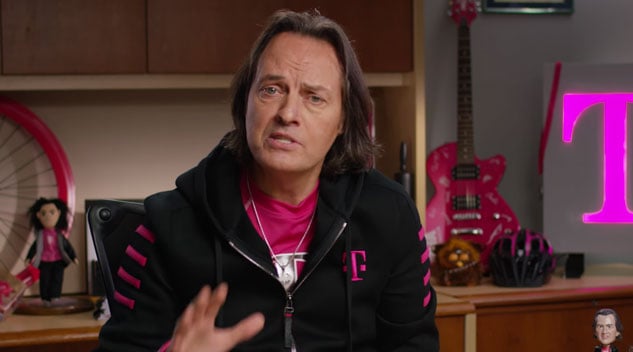T-Mobile CEO John Legere Responds To Binge On 'Throttling' Critics, Doesn’t Understand All The Ruckus

Not everyone was happy about this move, however. Google was particularly incensed, as it never signed up to be a partner with Binge On, yet its videos were reduced to 480p quality anyway. “Reducing data charges can be good for users, but it doesn’t justify throttling all video services, especially without explicit user consent,” a YouTube spokesman said in a statement last month.

The key point of contention during this whole streaming war has been over the use of the word “throttling.” T-Mobile doesn’t like to use that term (as it runs afoul of the FCC), and says that the use of the term is misleading. In an emailed statement to HotHardware late last month, a T-Mobile representative wrote:
We aren’t slowing down YouTube or any other site. In fact, because video is optimized for mobile devices, streaming from these sites should be just as fast, if not faster than before. A better phrase is “mobile optimized” or a less flattering “downgraded” is also accurate.
In the time since, the Electronic Frontier Foundation (EFF) jumped on the anti-Binge On bandwagon, saying that what T-Mobile is doing to video streams absolutely constitutes as throttling.
T-Mobile’s video “optimization” doesn’t actually alter or enhance the video stream for delivery to a mobile device over a mobile network in any way. 2 This means T-Mobile’s “optimization” consists entirely of throttling the video stream’s throughput down to 1.5Mbps. If the video is more than 480p and the server sending the video doesn’t have a way to reduce or adapt the bitrate of the video as it’s being streamed, the result is stuttering and uneven streaming—exactly the opposite of the experience T-Mobile claims their “optimization” will have.
With so many targets painted on T-Mobile’s back, Magenta’s fearless leader, John Legere, has finally addressed the issue head-on via a YouTube video (hopefully, T-Mobile customers aren’t watching the stream with Binge On enabled… oops). For starters, Legere doesn’t see why people are even upset about Binge On — in his mind, he’s providing customers with a way to save on data costs, so why should people complain? He also points out that T-Mobile customers have embraced Binge On and have increased their mobile video streaming since its introduction.
With regards to throttling, Legere says that using that term is complete “bullshit” and not accurate. Instead, he says the Binge On merely optimizes the video stream and chooses a bitrate that is “designed to stretch your mobile video consumption.” Legere goes on to say that Binge On could be compared to a car manufacturers adding an “Economy” mode to reduce fuel consumption. Legere ends his rant by going straight after Google and organizations like the EFF which it says have an ulterior motive when it comes to attacking T-Mobile.
In our eyes, T-Mobile could end most of the hoopla surrounding Binge On by making one simple change: make the feature opt-in instead of opt-out.

